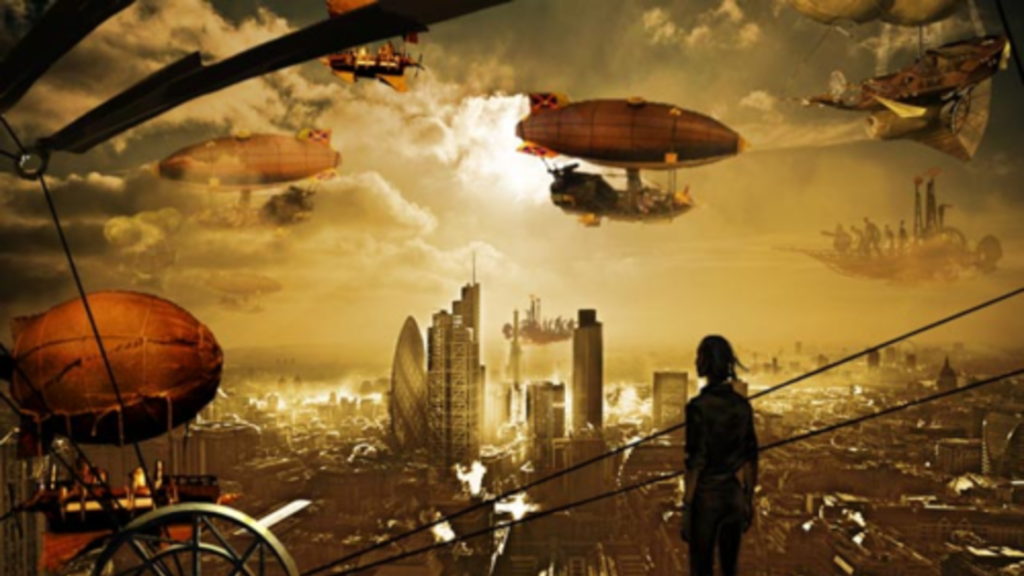
Me old China, you’re the Drama Queen
There is a school of thought that suggests judgement on China Mieville’s essay on ‘apocalyptic London’ should be reserved until Monday, when a longer version is posted to the sensationally-titled website www.londonsoverthrow.org. Depending on the thread that the ‘extended version’ navigates this may be a response to bad editing on the part of the NYT rather than the author. But with a URL like that, one would imagine that breath-holding isn’t advised.
Mieville’s authorial flânerie through contemporary London seems at once both melodramatic and undirected. The essay is bookended by public sector protests and ends with an excerpt from an interview with Lionel Morrison which he uses as a device to cast a tone over the whole of what has gone before. That in itself is misguided as the two quotes from Morrison and weaved together with a consummate storytellers deftness of touch to add a new intentionality that seems it is the authors as opposed to the interviewee’s.
Morrison doesn’t sound despairing. But he does sound tired. “Every time you do something and nothing goes any further, it eats at you,” he says. “It starts this bitterness.” It can break people down. Make them hopeless, or worse. When none of their efforts to improve anything work, some, he warns, will stop fighting. They will say, “Let us just wait for things to — for chaos, really, to take place.”
In fact, the question is whether the second quote comes from Morrison at all or one of Mieville’s shadowy half-formed pseudo-literary characters that seem to guide us through his London. David Lindo, the ‘Urban Birder’, is twisted to imbue London’s Fauna with portents of the cities impending decay. According to Mieville, of London’s wild parakeets, he ‘eye’s them with dislike’, yet there is no word from his source that even intimates this. The dislike is instead authorial, in order to pick up where the fox, ‘agent of animal chaos’ leaves off, with a ‘flock of feral parakeets’ across Wormwood scrubs. Mieville could have chosen Richmond park, which has a significant parakeet population, but that frankly may have rang with the wrong kind of poetry.
In what we must assume is an intentionally disorientating gallop we take in Cameron, the Mittals and the Olympics, Boris Johnson, the two sides of Tottenham, the Riots, via a quick pop at the Guardian, before launching into ASBOs, Islamaphobia and the new far right. Still with me?
Mieville offers little insight on any of these. Instead we are given heavily coloured observation that moves Op Ed into a new territory of creative license. He manages a primary-school level jibe, ironically the least eloquent part of the piece at the Guardian’s ‘reading the riots’ a relatively heavyweight piece of sociological research, but simplifying the conclusion to the point of absurdity.
What they discovered, through extensive research and interviews, was that what motivated many of those on the streets was resentment of the police and a deep sense of injustice. Eyes roll with the duh.
The parts where we are offered something approaching constructive comment is elementary, though it is somewhat lost amongst the literacy insensibilites. Lack of new council houses and resulting flight of the poor to outer London=Bad. Multicultural London=great from a culinary point of view. Far right parties= do well amongst disaffected groups in a recession. At this point as a reader, you can feel ones eyes beginning to ‘roll with the duh’. He goes on to touch upon deaths in police custody, but not before he has drawn a cheap comparison between last years riots and 1981 in Brixton and 1985 in Brixton and Tottenham.
The disturbances of the 80s had a shape and direction that was lacking and there were social immediacies that were being addressed, (especially with regard to an even more strained race relations landscape) albeit in a very imprecise and extra-legal way. The problems now are of the same nature but different in character, though this is not the place to go into it, (though it would make a great comparative follow-up to FailToPlan’s undergraduate thesis on 1981 in Brixton).
The critique of the changing nature of housing in London is particularly irksome as the return of the middle classes to central London and the associated investment has meant that London has steered away from the path that at its most extreme version is represented by US donut cities such as Detroit where flight from the centre has left the heart torn out. It is in fact London’s increasing inner city rents and inability to build more social housing that is symptomatic of this move back to the city from suburbia. No doubt if the net flow was the other way also, Mieville would still be criticising.
Perhaps there is a question of audience. Published in the New York Times, the piece gives the impression of a steam-punk maze, a disjointed fantasy landscape where foxes roam wild on building sites and global near-future tournaments are built on old industrial sites for the entertainment of the violent masses by a privileged cabal who run government, desperate to keep the citizens from looting and rioting out of sheer boredom and wanton destruction. Which is probably exactly what you want to hear abut London if you are New York. The reality, at least in my opinion is very different, and my own thoughts on New York, here, reflect actually the ways in which London has developed and changed in a way that the its big sister across the pond seems unable to do, trapped in cultural aspic as a paean to the 20th century. Mieville’s dystopian London is a great story, and part of me can’t wait to read the book. Just make sure you file under fiction.